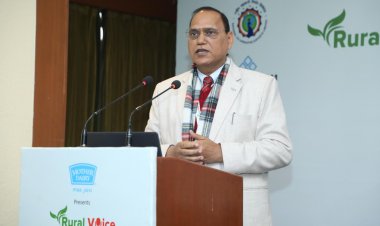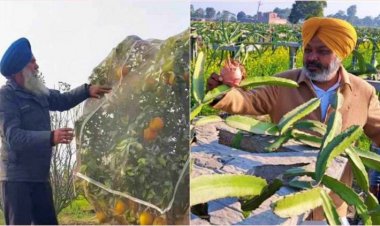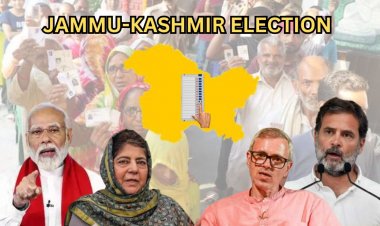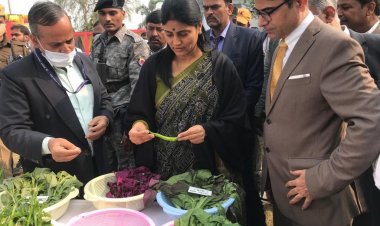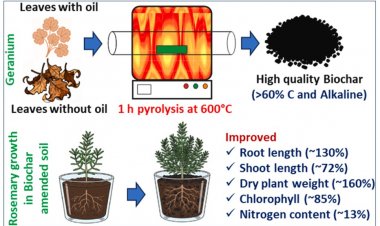Self-reliant India not possible without mining and mineral sectors: Amit Shah
The Narendra Modi government had made many changes in the mining sector in the last eight years, said Union Home and Cooperation Minister Amit Shah. Instead of the first-come-first-serve policy of 2014, the Modi government arranged for the auction of coal blocks and uprooted corruption. 100 per cent FDI in the coal sector was allowed and 50 per cent profit on early mining in the revenue share was given. Many policy changes like coal gasification, reviving abandoned mines, surrendering unutilized blocks from PSUs and opening to private companies have been allowed.

Union Home and Cooperation Minister Amit Shah said that a self-reliant India was not possible without the mining and mineral sectors. Coal and mining sector reforms and self-reliance of these sectors are the basic conditions to make India self-reliant.
The Narendra Modi government had made many changes in the mining sector in the last eight years, said Shah. Instead of the first-come-first-serve policy of 2014, the Modi government arranged for the auction of coal blocks and uprooted corruption. Between 2015 and 2020, 10 auction chains were conducted and 35 coal blocks were successfully auctioned. A total of 85 blocks were allotted with a production capacity of 440mn tonnes.
Shah was addressing the 6th National Conclave on Mines and Minerals in New Delhi on July 12. Many dignitaries, including Union Minister of Mines, Coal and Parliamentary Affairs Pralhad Joshi and Union Minister of State for Mines, Coal and Railways, Raosaheb Patil Danve, were present at the programme.
In June 2020, the Prime Minister launched commercial coal mining and ushered in a new era, said Shah. 100 per cent FDI in the coal sector was allowed and 50 per cent profit on early mining in the revenue share was given. Many policy changes like coal gasification, reviving abandoned mines, surrendering unutilized blocks from PSUs and opening to private companies have been allowed by the government.
The Home Minister said that production of coal was 566mn tonnes in 2013-14, which reached 777mn tonnes in 2021-22, and the offtake was 572mn tonnes, which had reached 818mn tonnes. Up to 50 per cent of captive mines have also been opened for sale, due to which coal has begun to be mined from within the country instead of having to import. To keep the cost of production down, Coal India works to provide imported coal at 82 per cent discount to coal industrialists, small, medium industries, due to which they are able to stand on their own in the global market today.
Shah said that by setting up the District Mineral Fund (DMF), Modi had given rights to those living in mining areas. This will lead to inclusive development of those areas. So far, more than Rs 63,800 crore has been given under the DMF.
In his address on the occasion, the Home Minister said that the Government of India had worked to bring transparency, remove barriers and open it up to the private sector in many ways as well as take into account the environmental concerns related to it while formulating the policy for this sector. He said that if the minerals extracted from the land were not used for multiple purposes and to increase industrial activity and exports of the country, then it would be an activity for personal gain.
Shah said that for decades corruption in the coal sector had deepened its roots. There were court cases regarding allocations during earlier governments. CAG raised questions and many allocations had to be cancelled. He said that minerals were the nation’s property and its auction should be conducted in such a way that the minerals could be used in a transparent manner to give impetus to the country's economy. Not only revenue but also the purpose of their use should be looked into.
On the basis of an estimate, if there is an increase of one per cent in the mine area, then there is an increase of 2.5 per cent in our industrial production. And that is why, Shah said, it should be a priority sector. He said that this was a sector in which one direct job created ten indirect jobs. The mining and minerals sector is the largest employment-generating sector, said Shah, after aviation and tourism.
The Home Minister said that minerals were a dwindling resource. And if we look at history, the reason for the decline of many empires is the lack of proper use of minerals. We also have to make balanced use of minerals in development while being aware of this.
Shah said that we should not be limited to the export of raw materials only. Products made from mineral resources extracted in the country should also be manufactured in India and from here they should go to world markets as final products.
Despite having a large amount of coal, said Shah, we were one of the biggest importers, but today under the leadership of Pralhad Joshi, we have been successful in reducing the import of coal to a minimum. We have created a coal linkage that no one could have imagined.



 Join the RuralVoice whatsapp group
Join the RuralVoice whatsapp group


















